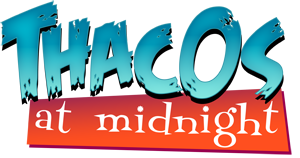 Using languages that the player characters are not supposed to understand has always been tricky for me in games. I’ve always been of the opinion that if there is something important that the characters need to know, just tell them! However, in the back of the Planarch Codex, one of the Kickstarter supplements for Dungeon World, I noticed the following move that caught my imagination:
Using languages that the player characters are not supposed to understand has always been tricky for me in games. I’ve always been of the opinion that if there is something important that the characters need to know, just tell them! However, in the back of the Planarch Codex, one of the Kickstarter supplements for Dungeon World, I noticed the following move that caught my imagination:
When you interact with someone and don’t share a common way of speaking or doing business, roll+Cha. On a 10+, choose 3. On a 7-9, choose 2. On a miss, choose 1 but they’re clearly not happy with you.
• you make yourself understood
• you grasp more-or-less what they want
• you don’t look like a fool, child, or asshole
• you catch something they didn’t intend you to understand
• you make progress in learning how to interact with these people; start a new countdown or fill in a box of an existing one
The GM should use the number of filled-in boxes in your countdowns as a measure of your fluency, helping determine when to roll this move.
Countdowns were introduced earlier in the Codex, essentially you draw three to six boxes on your sheet (depending on length or in this case difficulty of learning a given language) and the GM can give you incentives to progress down them, or make progressing down them part of a move, etc. When they are full, a thing happens. In this case it would be “Become fluent in language X”
This seems like a great way to have languages be part of a game, because no matter what you roll, the player will always have the option to understand what they want, and can choose a level of understanding that reflects how important they think the conversation is.
Inspired by this, I’ve come up with language related moves for the other mental traits:
When you study a written text in a language that you are not fluent in, roll+Int. On a 10+, choose 3. On a 7-9, choose 2. On a miss, you can choose only 1.
• You grasp the purpose of the text. (It’s a warning sign, It’s a treatise on herbology, It’s the name of this mine shaft, etc.)
• You understand more-or-less the literal meaning of what has been written.
• You glean a hidden meaning, metatextual element or cultural context.
• You don’t take a long time.
• You make progress in learning how to read this language; start a new countdown or fill in a box of an existing one.
When you actively listen to a language that you are not fluent in, roll+Wis. On a hit, you understand the conversation, more-or-less. On a 10+, choose 2. On a 7-9, choose 1.
• You gain additional information about the speakers. (Where they are from, level of education, etc.)
• You understand a reference not meant for the casual listener.
• It isn’t obvious that you understand what is being said.
• You make progress in learning how to understand this language; start a new countdown or fill in a box of an existing one.
I think these moves would be great in a game where you’ve already asked your players “What is your character’s home language?” and maybe “What language is your character trying to learn?”. They could even start with a Countdown partially filled out!
